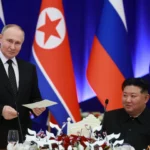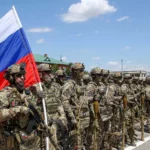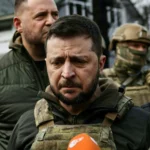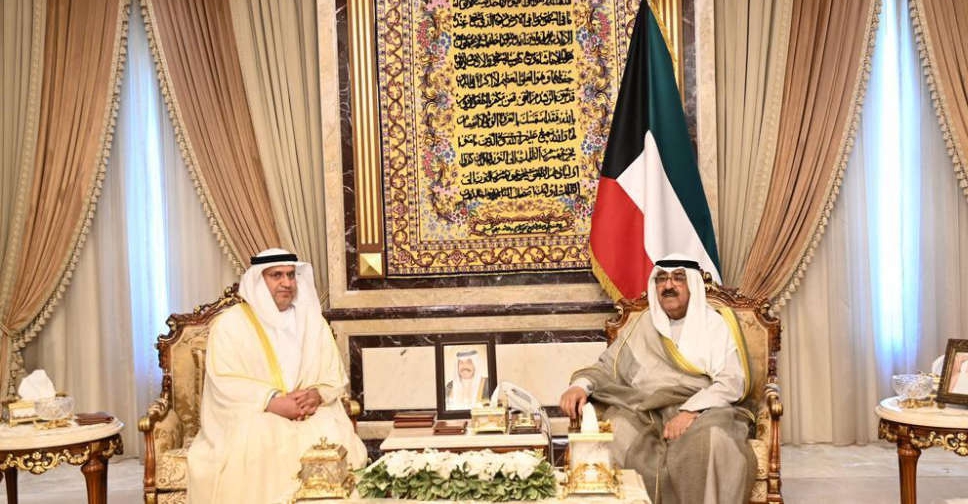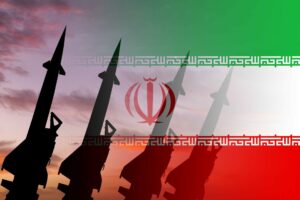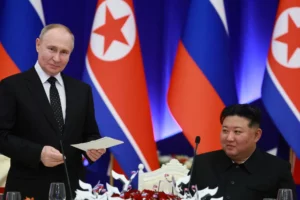Beijing on Monday praised ongoing talks aimed at finding a formula for peace in Ukraine, after a Chinese envoy attended a weekend summit in Saudi Arabia that was slammed by Russia as “doomed to fail.”
China said the two-day meeting, which took place in the Gulf kingdom’s port sea city of Jeddah, helped “to consolidate international consensus” on finding a peaceful solution to the conflict, Reuters reported, citing a Chinese foreign ministry statement.
The talks brought together more than 40 nations, including Ukraine, the United States, European states, and the BRICS group of countries – perhaps none as closely watched as China, Russia’s most powerful ally. Kremlin officials said Russia had not been invited to the talks but was monitoring them, state media reported.
While the summit yielded little more than a pledge to hold more discussions in the future, Ukraine hailed China’s attendance as a diplomatic victory. Beijing had steered clear of a previous round of talks in Denmark in June, but has deepened ties with Saudi Arabia in recent years.
China was given a prominent seat at the table in Jeddah. In photos published by Saudi Arabia’s state news agency, Saudi national security adviser Musaed bin Mohammed Al-Aiba was sat between his US counterpart, Jake Sullivan, and Chinese Special Representative on Eurasian Affairs Li Hui.
Li “had extensive contact and communication with all parties on the political settlement of the Ukraine crisis … listened to all sides’ opinions and proposals, and further consolidated international consensus,” China’s foreign ministry told Reuters in a written statement.
“All parties positively commented on Li Hui’s attendance, and fully backed China’s positive role in facilitating peace talks,” the statement said, adding that Beijing would continue to work to strengthen dialog based on its 12-point proposal for Ukraine. CNN has reached out to the ministry for comment.
China claims to be a neutral party to the conflict but leader Xi Jinping has deepened his relationship with Russian President Vladimir Putin and echoed the Kremlin’s rhetoric on the war.
Beijing, which views Moscow as a key partner and counterbalance amid its own rising tensions with the West, has refused to condemn Putin’s invasion or call for the withdrawal of Russian troops from Ukraine’s territory, and rejected joining Western sanctions on the Kremlin.
There is no indication that China’s attendance at the summit will lead to any change in its staunch support for Russia, but Beijing is increasingly eager to be seen as an international peacekeeper. Kyiv praised the development as a “super breakthrough.”
“Saudi Arabia has attracted China, and this is a historic victory,” Ukrainian Foreign Minister Dmytro Kuleba said Friday, before the summit got underway.
Beijing and Riyadh have been keen to flout their growing ties. China scored a diplomatic win in the Middle East earlier this year when it helped broker a landmark normalization deal between Saudi Arabia and Iran.
Saudi Arabia, meanwhile, has coordinated oil output with Russia – both nations are members of the OPEC+ group of crude exporters – despite objections from the West and accusations that Riyadh was “siding with Moscow” in some of its oil cuts.
In a statement from the Saudi Press Agency (SPA), Saudi Arabia stressed the importance of “benefiting from views and positive suggestions” made during the meeting.
Russia mostly scoffed at the talks, describing them as “Western efforts to mobilize the global south to support Zelensky’s formula” and saying such efforts were “doomed to fail.”
Russian Deputy Foreign Minister Sergei Ryabkov however noted that the participation of BRICS countries such as China and India was potentially useful, as they may “convey common sense to the Western patrons of Kyiv.” Russia would be discussing the outcome of the talks with its BRICS partners, Ryabkov added.
In the meantime, the prospect of direct peace talks between Russia and Ukraine seem as far-fetched as ever, as the grueling war approaches the 18-month mark.
Ukraine’s deputy defense minister noted on Monday that Russian forces had fired nearly half-a-million munitions in the last week alone in the east, but the front line has barely budged.
CNN’s Beijing bureau contributed to this report.
Source : CNN



